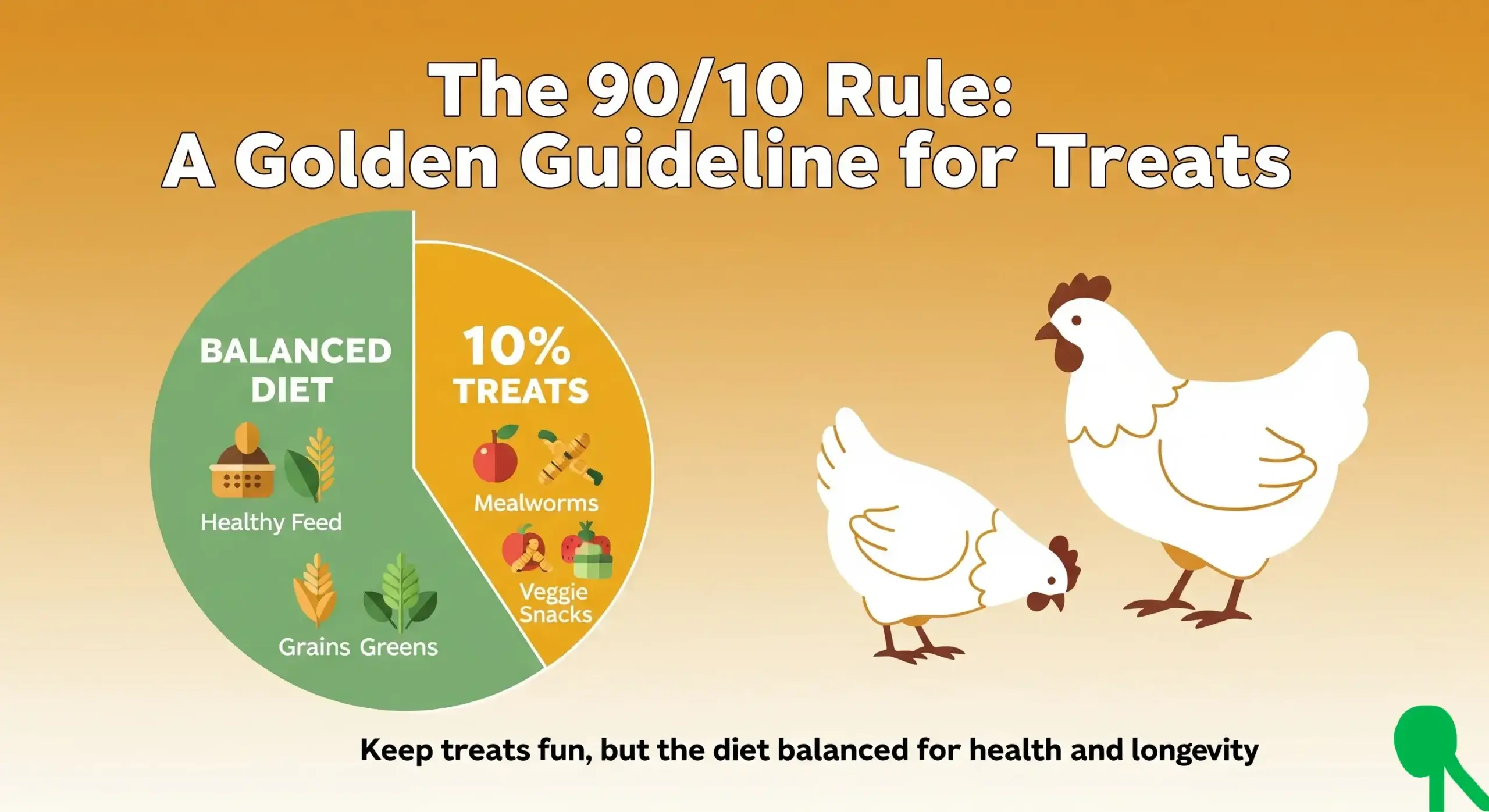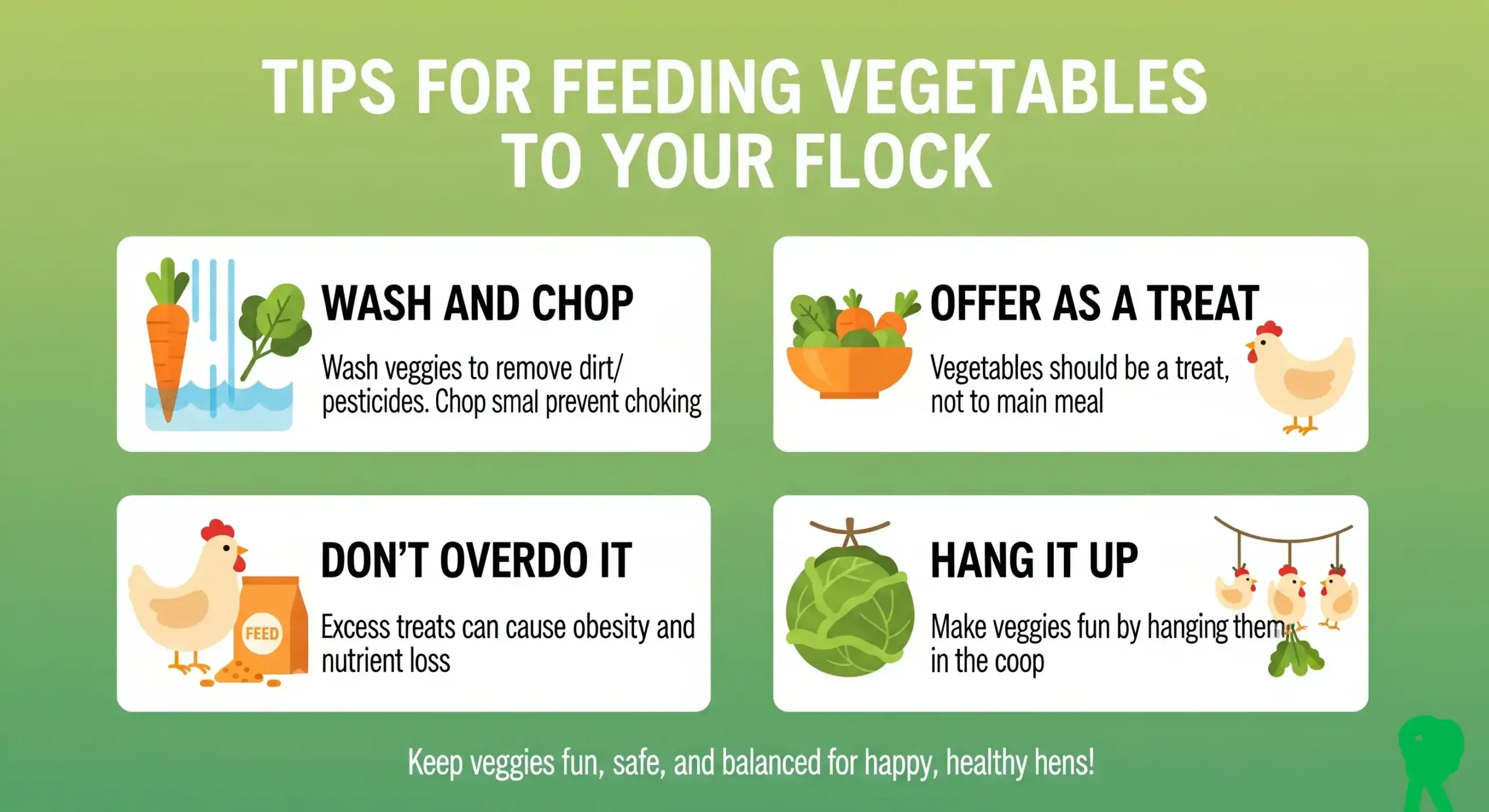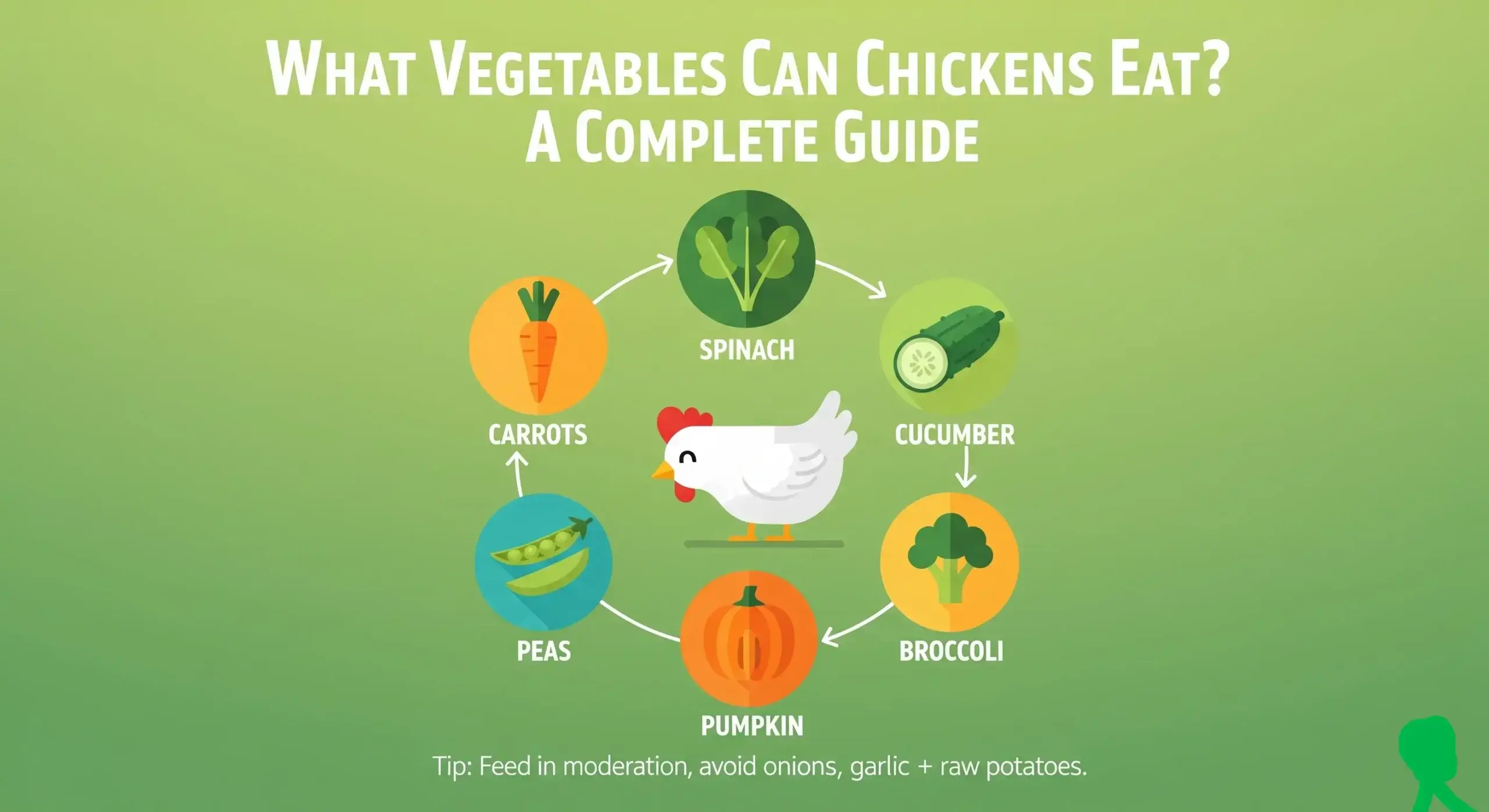Giving your chickens treats is one of the most fun and rewarding parts of raising a flock. While table scraps and kitchen leftovers might seem like an easy way to reduce waste, it’s crucial to know what’s safe and what’s not. Vegetables can be a fantastic source of vitamins, nutrients, and entertainment for your chickens, but some can be harmful.
This guide will walk you through which vegetables are safe to feed your flock, how to prepare them, and which ones you should absolutely avoid.
The 90/10 Rule: A Golden Guideline for Treats
Before you offer any treats, remember the 90/10 rule. Your chickens’ diet should consist of at least 90% nutritionally complete, high-quality feed. The remaining 10% can be reserved for healthy treats like fruits, vegetables, and other scraps. This ensures your chickens get all the vitamins and minerals they need for strong health and egg production.

Safe & Healthy Vegetables for Chickens
A wide variety of vegetables is safe and beneficial for your chickens. They are a great source of essential vitamins and hydration. Here is a list of common vegetables you can safely feed your flock:
- Leafy Greens: Chickens love greens! Offer them kale, lettuce, spinach, Swiss chard, and cabbage. While greens are healthy, feed spinach in moderation as it contains oxalic acid, which can interfere with calcium absorption.
- Cruciferous Vegetables: Broccoli, cauliflower, Brussels sprouts, and cabbage are all safe. They are packed with vitamins but can cause gas, so feed them in small quantities.
- Root Vegetables: Chickens can eat carrots, beets, and potatoes. Carrots should be chopped or grated to prevent choking. Potatoes must always be cooked, as raw potatoes contain solanine, which is toxic to chickens.
- Squash and Melons: Chickens enjoy all types of squash, including zucchini, pumpkin, and winter squash. They also love melons like cantaloupe and watermelon. These are excellent sources of hydration on hot days.
- Peppers and Tomatoes: Chickens can eat ripe red tomatoes and bell peppers. However, avoid feeding them the leaves, stems, or any part of the green plant, as these are toxic.
Vegetables to Avoid
Some vegetables can be toxic to chickens and should never be fed to your flock.
- Raw Beans: Dried and uncooked beans contain a toxin called phytohaemagglutinin, which can be fatal to chickens even in small amounts. Always ensure beans are thoroughly cooked before feeding them to your flock.
- Rhubarb: The leaves and stalks of rhubarb are highly toxic to chickens.
- Avocado: The skin and pit of avocados contain a fungicidal toxin called persin, which can cause respiratory distress and heart failure in chickens. While some sources say the flesh is safe in small amounts, it is best to avoid it to be safe.
- Onions: Large quantities of onions can cause a condition called “hemolytic anemia” in chickens, which damages red blood cells. It’s best to avoid them entirely.
Tips for Feeding Vegetables to Your Flock

- Wash and Chop: Always wash vegetables to remove any pesticides or dirt. Chop them into small, manageable pieces to prevent choking and make them easier to eat.
- Offer as a Treat: Vegetables should be given as a treat, not a main meal. Offer a small amount once a day.
- Don’t Overdo It: Too many treats can lead to obesity and a lack of essential nutrients from their regular feed.
- Hang it Up: For a fun and stimulating activity, try hanging a head of cabbage or a whole bell pepper in the coop. Chickens love to peck at them.
Frequently Asked Questions
Q: Can chickens eat potato peels?
Only if they are cooked. Raw potato peels contain solanine, a toxic compound. Cooked potato peels, however, are safe for chickens in moderation.
Q: Is it safe to feed chickens table scraps?
Many table scraps are safe, but you must be careful. Avoid feeding them anything with high salt, sugar, or processed ingredients. Never feed them raw meat, uncooked beans, or anything moldy.
Q: Can chickens eat garlic?
Yes, chickens can eat garlic in small amounts. Some chicken keepers add it to their water or feed as a natural dewormer or to support the immune system, but there is no scientific consensus on its effectiveness.
Q: What is the best way to introduce new vegetables to my chickens?
Introduce new foods slowly and in small quantities. Observe your chickens to see if they like the food and if it causes any digestive issues.
Hello! I’m Ibrahim, the owner and writer of this blog. I run a chicken farm with 160 chickens, and I’ve gained a lot of knowledge about raising and caring for them. Now, I want to share my insights and experiences with you to help you in chicken keeping.

